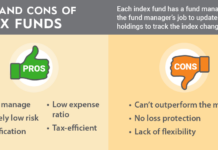As an investor, sometimes seeking the advice or investment support of an experienced professional can help your investment journey. Among the available financial professionals, the difference between investment advisors and brokers confuse a lot of investors. Although both seem similar, the two professional fields are different; they operate under different laws, qualifications, and responsibilities.
Knowing what differentiates these two parties will help you decide who to choose for your investment journey.
Investment Advisors
Registered investment advisors (RIA), investment managers, asset managers, or wealth managers offer personalized investment advice, including managing the client’s investment account. Investment advisors help their clients build a wealth management model to steer them to a healthy financial position.
For instance, if you were to use an investment advisor, they will help manage your investment affairs, including managing your investment portfolio with strategies like portfolio rebalancing, asset allocation, and portfolio diversification.
An investment advisor will also help a client with tax management, like implementing tax strategies that help clients pay fewer taxes using legal ways. Investment advisors mostly work closely with other professionals like accountants or tax specialists to have investment strategies like retirement saving plans, charity donations, and other savings accounts to reduce their tax liability.
Estate planning is also a part of an investment advisory service provision. This is where investment advisors work closely with estate planning attorneys to help clients plan their estates effectively and protect their assets when they pass away. With the help of an investment advisor, choosing estate planning strategies like wills, trusts, life insurance, or durable power of attorney minimizes your assets’ financial loss when transferring them to your beneficiaries or charity organizations.
Brokers
On the other hand, brokers offer investment and financial advice regarding buying and selling financial assets like stocks, bonds, and other market assets. The advice is still personalized to meet the client’s investment and financial goals.
Your broker will be in charge of the buying and selling transactions that you need if you’ve granted them the right to do so. Due to their proximity to the stocks market, brokers are always on toes with the market’s happening and the various industries and players.
Some brokers operate on their own while others work with financial or investment firms. Brokers are mostly paid in commissions based on how many transactions they execute for the client. However, some brokers still charge a service-based fee for their services.
Apart from differences in the job description for investment advisors and brokers, another difference may arise from practice standards. In most states, investment advisors are required by law to put the interests of their clients first, i.e., fiduciary standard. This translates to being loyal and not engaging in activities that create a conflict of interest with the client’s goals and objectives without the client’s consent.
On the other hand, brokers have no requirement to put their interests before that of the client but follow the suitability standard. The suitability standard requires brokers to recommend financial or investment advice that suits their client’s goals and objectives without excessive costs.
Who Should You Choose?
The choice of which professional to work with between an investment planner and a broker is ultimately yours. It can be challenging, but once you narrow it down to what you want from the relationship, choosing the best planner gets easier.
If you are looking for a more sophisticated investment management approach, an investment advisor will work. With services like investment management, tax, and estate planning, all your investment and financial issues will be under the management of an experienced professional.
If you are just looking for advice on the best financial assets to invest in on any particular day or an individual to perform the buying or selling transactions for you, then a broker could be the best choice.
It’s also important to note that both investment advisors and brokers will sometimes work closely with each other. Whomever you choose to work with, ensure that they have the qualifications, experience, and have a great understanding of your needs, objectives, and goals.











